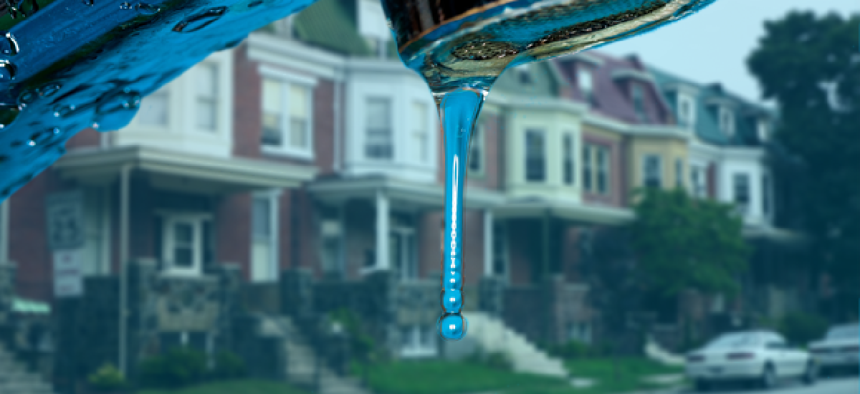Baltimore dives into smart water metering


Connecting state and local government leaders
Baltimore is one of the latest cities to install automated meters to collect precise data on utility usage in an effort to provide more accurate billing, increase efficiency and reduce waste.
Baltimore is one of the latest cities to install automated meters to collect precise data on utility usage in an effort to provide more accurate billing, increase efficiency and reduce waste.
The BaltiMeter project, which will use the meters to collect data on water usage, will begin rolling out in September with 10,000 meter installations in the city’s Mount Vernon and Pimlico neighborhoods and in Baltimore County’s Bowleys Quarters area, the city announced.
A small transmitter will be attached to each water meter to wirelessly send water usage. This data will then be collected and uploaded into the billing system. Information transmitted contains the meter serial number and consumption data. No identifiable homeowner information is transmitted.

In all, 203,000 Itron meters will be installed in the city by April 2016 and 204,000 in the county by April 2017. The transmission of usage information will eliminate the need for crews to manually read each meter, saving the city money.
"We've been making do with old equipment and old systems that do not offer the efficiency or reliability that the people and businesses of Baltimore expect,” said Baltimore Mayor Stephanie Rawlings-Blake. “BaltiMeter, which is more efficient, reliable and accurate, will help change that."
In Pittsburgh, Pittsburgh Water & Sewer Authority (PWSA) is installing water meter technology from Sensus to its 83,000 customers. The city expects to install the majority of them – approximately 78,000 water meter readers – to homes and businesses by September. Customers will be able to access their usage data via the web and receive alerts about their usage.
"This money-saving upgrade will benefit our utility and our customers," said Melissa Rubin, Public Information Officer at PWSA, in a recent statement. "We expect to save approximately $120,000 per year, allowing us to maintain affordable rates."
Bismark, N.D., is also installing automated water meters. Bismark will be using the Montana-Dakota Utilities Company’s (MDU) network, which provides electric and natural gas service to parts of Montana, North Dakota, South Dakota and Wyoming. Bismark will install 21,000 meters and MDU will provide the water meter readings over its Itron network.
“This public-private partnership is the first instance in which two utilities are cooperating to share a communications network where a city’s entire meter population is being managed,” noted a statement from Itron, the technology network provider.
Bismark will begin installing the meters in late summer and the project is expected to be completed within 18 months.
Baltimore, Pittsburgh and Bismark are three of many jurisdictions installing automated utility meters. According to a recent report by market analysis firm MicroMarket Monitor, the Advanced Metering Infrastructure (AMI) market is estimated to grow from $15.89 billion from 2013 to $28.45 billion by 2018, at a compound annual growth rate (CAGR) of 12.4 percent. In North America, the AMI market is estimated to grow $5.16 billion from 2013 to $8.99 billion by 2018, at a CAGR of 11.8 percent.
“The advanced metering infrastructure market in North America is growing rapidly due to government initiatives. This initiative entails the deployment of advanced metering infrastructure for which the American Recovery and Reinvestment Act 2009 has granted $4 billion,” noted a MicroMarket statement on the report.
NEXT STORY: Maryland moves HR to the cloud




